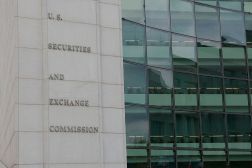National Security Commission on AI recommends digital reserve corps and academy

The National Security Commission on Artificial Intelligence recommended Monday the U.S. should create a digital reserve corps and digital service academy to increase the pipeline of tech-savvy workers into the public sector.
The recommendations come as part of the commission’s second-quarter report for 2020, which included several other lines of effort from ethics, diplomacy, protection, investment and the application of AI. The report has not been published but was discussed in a live-streamed video call. The commission also recommended expanding scholarship-for-service systems that would offer more financial help for those looking to advance technical skills in exchange for time in government.
The digital academy would be fully accredited and independent from the government, with students doing government and private sector internships during breaks, commissioners said Monday.
“This is really focused on scale,” said Bob Work, commission vice chair and former deputy secretary of defense. The ideas behind the recommendations on training are not new, but they’ve yet to be implemented in any meaningful way to expand opportunities to boost the digital workforce.
On the other hand, the new reserve corps would be housed in the Office of Management and Budget, which would offer financial support, oversight and project management to the corps.
“The United States government needs a better way to tap into the expertise of those who would like to serve,” said Jose-Marie Griffiths, NSCAI commissioner and president of Dakota State University. She noted that many technology workers would like to keep their private-sector jobs but still find ways to work for the government or military.
Reserve corps members would spend a minimum of 38 days working on government projects per year, mainly as advisors and instructors, Griffiths said. Like the National Guard and military reserve corps, there would be scholarships and continued education funding available to members.
The training recommendations were met with broad support by the other commissioners, with commission chair and former Google CEO Eric Schmidt asking, “Can I vote three times?”
One member, Mignon Clyburn, a former commissioner at the Federal Communications Commission, told other members that a stronger emphasis needs to placed on diversity in the government’s recruitment of students and reserve corps members.
“If the recruitment only happens [where] the roads are paved, then you have missed a lot of opportunities,” she said.
The meeting was the first since a court ruled the commission needed to be more transparent in its work.
The commission voted on dozens of other recommendations, like having diplomats be AI- and tech-literate to work with allies better on AI, and ways for the Department of Defense to work more efficiently with research labs.






